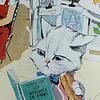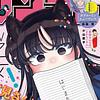Take a photo of a barcode or cover
I write this review to caution the reader, however. It is extremely graphic and even though I used to think content warnings unnecessary when reading books, and maybe I should have expected it, I was a bit caught off guard by the descriptions of suicide.
I think maybe I shouldn't have read this book. Even though I know it will have a profound effect on me and I will think of it long after I have finished it, I think maybe it was a bit too much. Considering it is, in many ways, an autobiographical description of Plath's life, the content of the story and the events that proceeded in Plath's life broke my heart. Personally, as well, I will be going to college at a school extremely similar to the one both Esther Greenwood and Sylvia Plath went to. In fact, Sylvia graduated from high school in the town I will be attending college. It humanized the book in a way I did not think possible, as it had already been extremely personal.
I would recommend others read this book, but only after understanding the content and not considering it a lighter read.
4.5/5 stars
Graphic: Drug abuse, Drug use, Racism, Rape, Self harm, Sexual assault, Sexual violence, Suicidal thoughts, Suicide, Suicide attempt
Graphic: Child death, Death, Mental illness, Self harm, Sexual content, Suicidal thoughts, Suicide, Blood, Vomit, Medical content, Medical trauma, Suicide attempt, Injury/Injury detail
Graphic: Self harm, Suicidal thoughts, Suicide, Vomit
Moderate: Sexual content
Graphic: Mental illness, Self harm, Suicidal thoughts, Suicide, Suicide attempt
Moderate: Death, Physical abuse, Racial slurs, Racism, Forced institutionalization, Blood, Vomit, Medical content
Minor: Sexual content, Death of parent, Alcohol
Graphic: Self harm, Suicidal thoughts, Suicide, Suicide attempt
Graphic: Mental illness, Self harm, Suicidal thoughts, Suicide, Medical trauma, Suicide attempt
Graphic: Mental illness, Self harm, Suicidal thoughts, Suicide attempt
Whilst I at first felt that the story was disjointed from Esther's time in New York to her eventual mental decline at home, looking back and understanding Sylvia Plath's own struggles with mental health, which would lead to her suicide, demonstrates how there is not one singular turning point for a person, but the piling on of events. Esther struggles with
It's unfortunate the novel is held back by it's rather dated portrayals of Black people, and the more consistent racist caricatures of contrasting Esther's bad appearance to Asian nationals. You can argue that Plath was 'of her time', but it's reasonably understandable why these depictions would make the average reader, particularly readers of colour, uncomfortable.
However, if you can acknowledge these depictions and decide to continue reading, you will see a very interesting slow-burn demonstration of a woman's mental decline.
Graphic: Mental illness, Self harm, Suicidal thoughts, Suicide, Suicide attempt
Moderate: Death, Racism, Sexual content, Blood, Death of parent, Injury/Injury detail
Minor: Alcohol
I saw myself sitting in the crotch of this fig tree, starving to death, just because I couldn't make up my mind which of the figs I would choose. I wanted each and every one of them, but choosing one meant losing all the rest, and, as I sat there, unable to decide, the figs began to wrinkle and go black, and, one by one, they plopped to the ground at my feet.
Graphic: Suicidal thoughts, Suicide
Moderate: Addiction, Self harm
Graphic: Mental illness, Racial slurs, Self harm, Suicidal thoughts, Suicide, Blood, Suicide attempt





